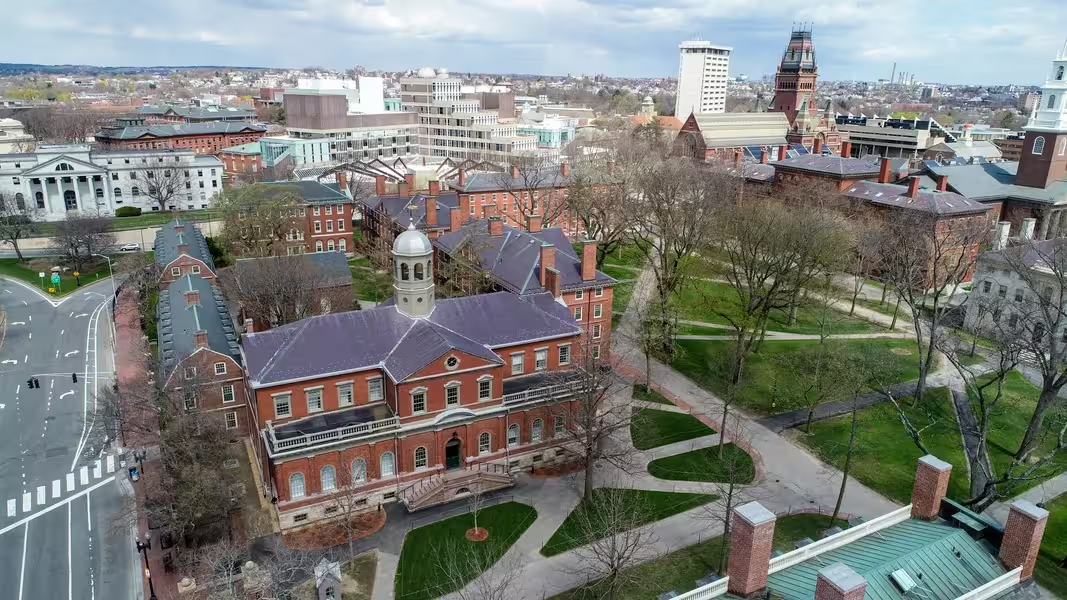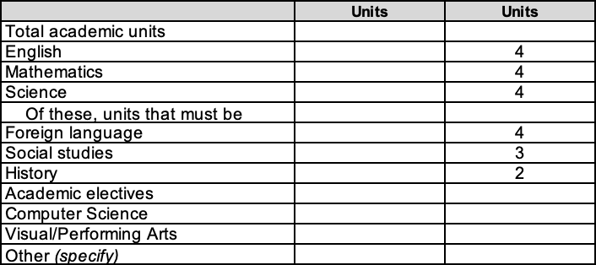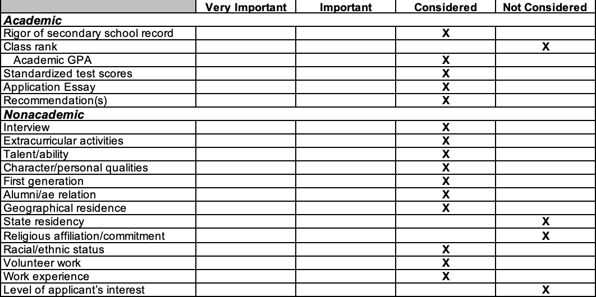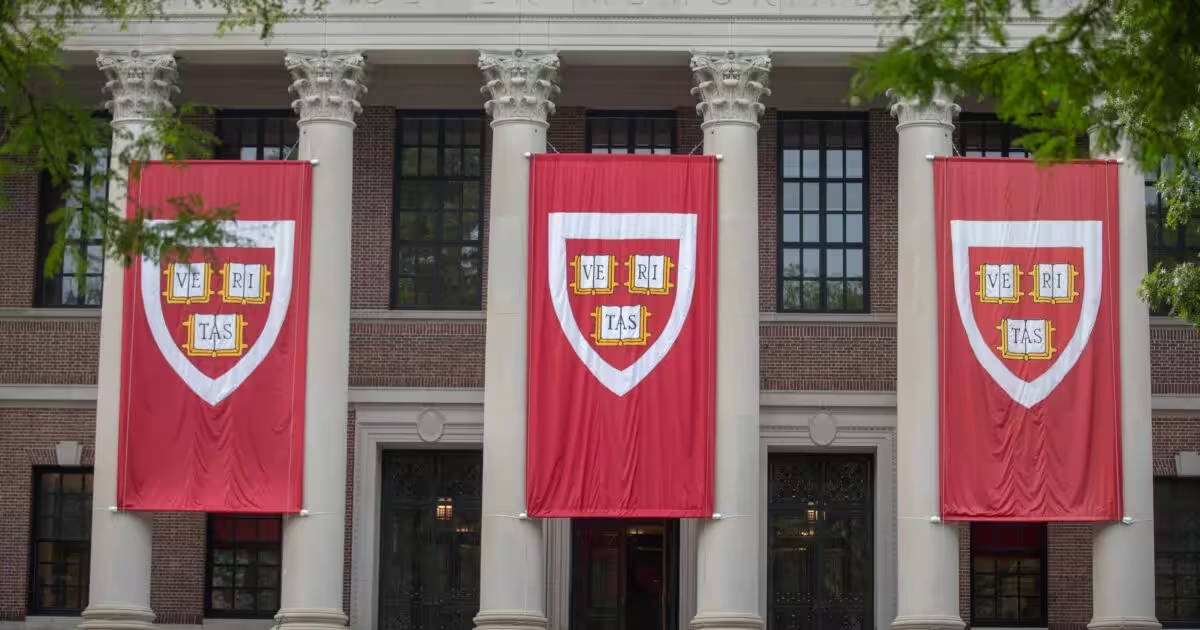Harvard University Admissions Profile

Introduction
Harvard University, renowned for its academic prestige and rich history, stands as a symbol of excellence in higher education. For countless aspiring students, gaining admission to Harvard is a lifelong dream. However, the path to becoming a Harvard student is not without challenges. In this comprehensive article, we delve into the Harvard University admissions profile, shedding light on the key factors that shape the application process, the qualities Harvard seeks in its applicants, and valuable insights for prospective students. So, if you're ready to embark on a journey of educational achievement, read on to discover the secrets behind Harvard University's admissions process.
Harvard University Admissions Profile
Harvard University, located in Cambridge, Massachusetts, holds stringent admission standards. The admissions profile provides a comprehensive overview of the qualities and achievements the university looks for in its applicants. To gain a better understanding of what it takes to be admitted into Harvard, let's explore the various aspects of the Harvard University admissions profile.
Below are tables highlighting how Harvard evaluates each applicant through information published in the Common Data Set, a resource that compiles a standardized list of data items provided by universities about their admissions profiles.
Distribution of high school units required and/or recommended

Relative importance of each of the following academic and nonacademic factors in your first-time, first-year, degree-seeking general (not including programs with specific criteria) admissions decisions

SAT and ACT Policies
![]()


Academic Excellence: The Foundation for Success
At Harvard, academic excellence serves as the bedrock for the institution's rigorous curriculum. As such, the admissions committee places a significant emphasis on an applicant's academic achievements. High school transcripts, including course selection, grades, and GPA, form a vital component of the admissions evaluation. Harvard seeks students who have consistently challenged themselves academically and excelled in their studies.
Standardized Test Scores: A Measure of Aptitude
Standardized tests, such as the SAT and ACT, provide an additional measure of an applicant's aptitude. While test scores are not the sole determinant of admission, they do hold weight in the evaluation process. Harvard University considers both the SAT and ACT scores and does not require the optional essay section. Exceptional performance in these tests can greatly enhance an applicant's chances of acceptance.
Extracurricular Involvement: Demonstrating Passion and Leadership
Beyond academic achievements, Harvard values students who demonstrate a commitment to extracurricular activities. Involvement in clubs, sports, community service, and other pursuits showcases an applicant's multifaceted abilities and interests. The admissions committee looks for students who have made a positive impact in their communities, displayed leadership qualities, and pursued their passions outside the classroom.
Personal Essays: Unveiling the Applicant's Voice
Personal essays provide applicants with an opportunity to showcase their unique stories, experiences, and aspirations. Harvard University places great importance on the personal essay, as it allows the admissions committee to gain insight into an applicant's character, values, and motivations. A compelling and well-crafted essay can make a significant difference in the admissions decision.
Supplemental Essays in Harvard University's Admissions Process
One key component of the Harvard University admissions process is the supplemental essay portion, which allows applicants to display their intellectual curiosity, personal character, and commitment beyond what can be presented through grades and standardized test scores. While the main common application essay gives students the opportunity to talk about their background, identity, interest, or talent, the Harvard supplemental essays provide a platform for students to showcase their specific interest in Harvard and further explore their potential contributions to the Harvard community.
For the academic year 2023-2024, Harvard requires one main supplemental essay and offers an additional optional essay. Here's a closer look at the prompts:
Main Supplemental Essay
The prompt for the main supplemental essay is quite open-ended: "Please briefly elaborate on one of your extracurricular activities or work experiences." (50-150 words). This brief essay gives applicants the chance to delve deeper into an experience that has shaped their life or has a significant meaning to them. It's an opportunity to demonstrate the growth, skills, and insight gained from the experience, and how these factors contribute to the applicant's unique perspective.
Optional Essay
For the optional essay, the university leaves the topic completely up to the applicant, stating: "You may wish to include an additional essay if you feel the college application forms do not provide sufficient opportunity to convey important information about yourself or your accomplishments." The lack of a word limit for this essay provides considerable freedom, but applicants should aim for conciseness and clarity.
This essay is truly optional and should be used by applicants who have unique circumstances or experiences that were not addressed in other parts of the application. Some choose to elaborate on a passion project, a significant challenge they overcame, or a unique aspect of their background. The key is to provide new insights and perspectives, not repeat information already presented elsewhere in the application.
The purpose of the Harvard supplemental essays is to allow applicants the space to further distinguish themselves and exhibit the depth of their thinking, commitment, and character. In writing these essays, students are advised to be genuine and thoughtful, reflecting on their experiences with introspection and connecting their narrative to their aspirations at Harvard University. Every word counts in these brief essays, and each sentence should contribute to presenting a well-rounded profile of the applicant. Ultimately, these essays provide a window into the student's world, allowing Harvard admissions officers a glimpse of the potential new members of their academic community
Sample Essays
Essay:
I learned the definition of cancer at the age of fourteen. I was taking my chapter 7 biology test when I came upon the last question, “What is cancer?”, to which I answered: “The abnormal, unrestricted growth of cells.” After handing in the test, I moved on to chapter 8, oblivious then to how earth-shattering such a disease could be.
I learned the meaning of cancer two years later. A girl named Kiersten came into my family by way of my oldest brother who had fallen in love with her. I distinctly recall her hair catching the sea breeze as she walked with us along the Jersey shore, a blonde wave in my surrounding family's sea of brunette. Physically, she may have been different, but she redefined what family meant to me. She attended my concerts, went to my award ceremonies, and helped me study for tests. Whenever I needed support, she was there. Little did I know that our roles would be reversed, forever changing my outlook on life.
Kiersten was diagnosed with Stage II Hodgkin's lymphoma at the age of 22. Tears and hair fell alike after each of her 20 rounds of chemotherapy as we feared the worst. It was an unbearable tragedy watching someone so vivacious skirt the line between life and death. Her cancer was later classified as refractory, or resistant to treatment. Frustration and despair flooded my mind as I heard this news. And so I prayed. In what universe did this dynamic make any sense? I prayed to God and to even her cancer itself to just leave her alone. Eventually, Kiersten was able to leave the hospital to stay for six weeks at my home.
My family and I transformed the house into an antimicrobial sanctuary, protecting Kiersten from any outside illness. I watched TV with her, baked cookies for her, and observed her persistence as she regained strength and achieved remission. We beat biology, time, and death, all at the same time, with cookies, TV, and friendship. Yet I was so concerned with helping Kiersten that I had not realized how she helped me during her battle with cancer.
I had been so used to solving my problems intellectually that when it came time to emotionally support someone, I was afraid. I could define cancer, but what do I say to someone with it? There were days where I did not think I could be optimistic in the face of such adversity. But the beauty that resulted from sympathizing as opposed to analyzing and putting aside my own worries and troubles for someone else was an enormous epiphany for me. My problems dissipated into thin air the moment I came home and dropped my books and bags to talk with Kiersten. The more I talked, laughed, smiled, and shared memories with her, the more I began to realize all that she taught me. She influenced me in the fact that she demonstrated the power of loyalty, companionship, and optimism in the face of desperate, life-threatening situations. She showed me the importance of loving to live and living to love. Most of all, she gave me the insight necessary to fully help others not just with intellect and preparation, but with solidarity and compassion. In this way, I became able to help myself and others with not only my brain, but with my heart. And that, in the words of Robert Frost, “has made all the difference.”
Essay:
"Paint this vase before you leave today," my teacher directed as she placed foreign brushes and paints in my hands. I looked at her blankly. Where were the charts of colors and books of techniques? Why was her smile so decidedly encouraging? The sudden expectations made no sense.
She smiled. "Don't worry, just paint."
In a daze, I assembled my supplies the way the older students did. I was scared. I knew everything but nothing. And even in those first blissful moments of experimentation, it hurt to realize that my painting was all wrong. The gleam of light. The distorted reflection. A thousand details taunted me with their refusal to melt into the glass. The vase was lifeless at best.
As the draining hours of work wore on, I began wearing reckless holes in my mixing plate. It was my fourth hour here. Why had I not received even a single piece of guidance?
At the peak of my frustration, she finally reentered the studio, yawning with excruciating casualness. I felt myself snap.
"I barely know how to hold a brush," I muttered almost aggressively, "how could I possibly have the technique to paint this?"
She looked at me with a shocked innocence that only heightened the feeling of abandonment. "What do you mean you don't have the technique?"
It was as though she failed to realize I was a complete beginner.
And then suddenly she broke into a pitch of urgent obviousness: "What are you doing! Don't you see those details?? There's orange from the wall and light brown from the floor. There's even dark green from that paint box over there. You have to look at the whole picture," she stole a glance at my face of bewilderment, and, sighing, grabbed my paint,stained hand. "Listen, it's not in here," she implored, shaking my captive limb. "It's here." The intensity with which she looked into my eyes was overwhelming.
I returned the gaze emptily. Never had I been so confused…
But over the years I did begin to see. The shades of red and blue in gray concrete, the tints of Phthalo in summer skies, and winter’s Currelean. It was beautiful and illogical. Black was darker with green and red, and white was never white.
I began to study animals. The proportions and fan brush techniques were certainly difficult, but they were the simple part. It was the strategic tints of light and bold color that created life. I would spend hours discovering the exact blue that would make a fish seem on the verge of tears and hours more shaping a deer’s ears to speak of serenity instead of danger.
In return for probing into previously ignored details, my canvas and paints opened the world. I began to appreciate the pink kiss of ever-evolving sunsets and the even suppression of melancholy. When my father came home from a business trip, it was no longer a matter of simple happiness, but of fatigue and gladness' underlying shades. The personalities who had once seemed so annoyingly arrogant now turned soft with their complexities of doubt and inspiration. Each mundane scene is as deep and varied as the paint needed to capture it.
One day, I will learn to paint people. As I run faster into the heart of art and my love for politics and law, I will learn to see the faces behind each page of cold policy text, the amazing innovation sketched in the tattered Constitution, and the progressiveness living in oak-paneled courts.
It won’t be too far. I know that in a few years I will see a thousand more colors than I do today. Yet the most beautiful part about art is that there is no end. No matter how deep I penetrate its shimmering realms, the enigmatic caverns of wonder will stay.
Letters of Recommendation: The Testimony of Others
Letters of recommendation offer a glimpse into an applicant's personal qualities and achievements from the perspective of teachers, mentors, and supervisors. Harvard University requires two letters of recommendation from teachers who can provide valuable insight into an applicant's academic abilities and personal attributes. Choosing recommenders who know the applicant well and can speak to their strengths is crucial.
Demonstrated Interest: Going Beyond Academics
While Harvard University does not consider demonstrated interest as a formal factor in the admissions process, showing a genuine interest in the institution can still make a positive impression. Attending information sessions, visiting campus, and engaging with Harvard's community can help convey an applicant's enthusiasm for becoming part of the Harvard experience.
Harvard University Application Deadlines
An understanding of Harvard University's application deadlines is crucial for all prospective students. Each year, Harvard offers two primary admission paths — Restrictive Early Action (REA) and Regular Decision (RD) — each with their own set of deadlines and notification dates. It's essential to carefully consider which pathway aligns with your readiness and overall college application strategy.
Restrictive Early Action
Harvard's Restrictive Early Action is designed for students who have Harvard as their top choice and are ready to commit early in the application process. The deadline for REA is November 1. As the name suggests, it is "restrictive", meaning applicants may not apply early (either Early Decision or Early Action) to any other private colleges or universities. However, students can apply to public or international universities and still adhere to the 'restrictive' terms.
Applicants who apply REA will receive their admissions decisions in mid-December. Those who are admitted may have until May 1 (the universal college decision deadline) to accept or decline their offer, which allows time to apply for financial aid, compare other college acceptances, and make an informed decision.
Regular Decision
The Regular Decision deadline is January 1, and this option provides students with additional time to prepare their applications, gather materials, and craft their essays. Students who apply through Regular Decision will receive their admissions decisions in late March.
The reply date for admitted students under Regular Decision is also May 1, the universal response date. This common date ensures that all students, irrespective of the application path chosen, have until the same date to decide on their college destination.
Financial Aid Application
To be considered for financial aid, students must submit the financial aid application by February 1. Harvard University is committed to making education accessible to all and has a generous financial aid program. No matter the chosen admissions path, prospective students are encouraged to apply for financial aid if needed.
Remember that these deadlines are strict, and applications must be submitted by 11:59 PM in the applicant's local time zone on the deadline date. Late applications are generally not accepted. Planning and preparation are key to ensure that all aspects of the application — including transcripts, letters of recommendation, standardized test scores (if submitting), and essays — are completed and submitted well ahead of these deadlines.

Frequently Asked Questions
What is the acceptance rate at Harvard University?
Harvard University's acceptance rate is typically around 4-5%, making it one of the most competitive institutions to gain admission to.
Does Harvard University require interviews for all applicants?
No, Harvard University does not offer interviews to all applicants. Interviews are conducted on an invitation-only basis and are not a guaranteed part of the admissions process.
Can I apply to multiple programs within Harvard University?
Yes, applicants can apply to multiple programs within Harvard University, but each program may have its own specific requirements and application process.
Conclusion
Harvard University's admissions process is designed to identify exceptional students who possess the academic prowess, extracurricular involvement, and personal qualities that align with the institution's mission. Through a comprehensive review of an applicant's academic achievements, personal essays, letters of recommendation, and involvement beyond the classroom, Harvard aims to create a diverse and dynamic student body.
While the road to Harvard may be arduous, it is not impossible. By understanding the key components of the Harvard University admissions profile and showcasing your unique strengths, you can increase your chances of becoming part of the prestigious Harvard community. So, dream big, work hard, and let your passion guide you towards unlocking the doors to academic excellence at Harvard University.
